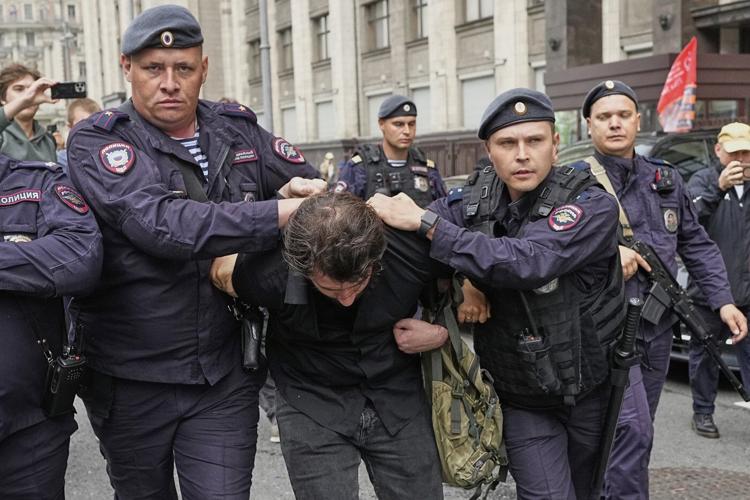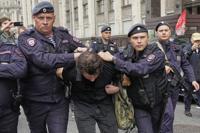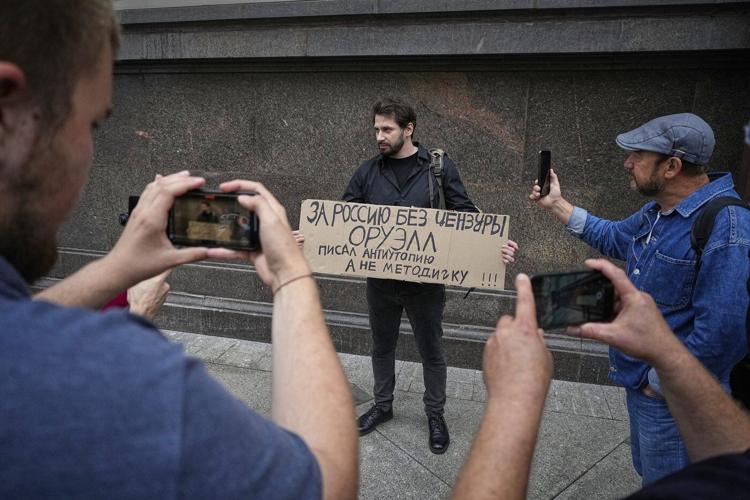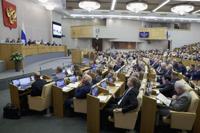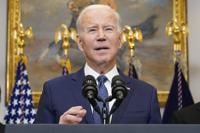MOSCOW (AP) — Russian lawmakers on Tuesday approved a bill that punishes online searches for information that is deemed “extremist,” the latest move by government authorities in their relentless crackdown on dissent.
The bill passed by the lower house, the State Duma, moves to its all-but-certain endorsement in the upper house and then goes to President Vladimir Putin to be signed into law.
The legislation punishes what it describes as “deliberately searching for and accessing extremist materials” online. First-time offenders face a fine of up to the equivalent of $64.
The official definition of extremist activity is extremely broad and includes opposition groups like the Anti-Corruption Foundation, created by the late opposition leader Alexei Navalny, and the “international LGBT movement.”
It’s not clear how authorities will track down violators. Officials and lawmakers said ordinary internet users won't be affected and only those who methodically seek outlawed content will be targeted. They didn't explain how the authorities would differentiate between them.
Some observers have suggested the information would likely come from internet providers or social media platforms, and police also could randomly check the search history of cellphones or computers.
The new legislation also contained a ban on advertising of virtual private network services and fines for VPN resources that fail to comply with government regulations, but stopped short of banning their use. It did list the use of a VPN as an “aggravating circumstance” in case of other violations of the law.
Russians widely use VPN services for access to banned content, but authorities have sought to tighten restrictions, trying to close the loopholes. The state communications watchdog has increasingly used technology to analyze traffic and block specific VPN protocols.
The Russian authorities have ramped their multipronged on dissent after sending troops into Ukraine in February 2022.
Since then, online censorship and prosecutions for social media posts and comments have soared. Multiple independent news outlets and rights groups have been shut down, labeled as “foreign agents” or outlawed as “undesirable.” Hundreds of activists and critics of the Kremlin have faced criminal charges.
The new legislation has sparked broad public criticism. The Duma, which unanimously supports most government initiatives, was markedly divided in Tuesday's vote, with 306 backing the measure, 67 voting against it and 22 abstaining. Among those who opposed the bill were some members of the Communist Party, Just Russia and the liberal New People party who usually follow the Kremlin's wishes.
Liberal politician Boris Nadezhdin, who sought to challenge Putin in last year’s presidential election but was denied a spot on the ballot, told reporters outside the State Duma that he opposed the new legislation. “It creates real problems for tens of millions of people," he said.
Nadezhdin’s aide, Dmitry Kisiev, who picketed the parliament building with a poster likening the legislation to the world of George Orwell’s dystopian “1984,” was quickly rounded up by police, who also detained several reporters covering the protest.
Even some pro-Kremlin figures have criticized the bill, arguing it would make it impossible for them to track down and deflect comments by Kremlin critics.
Margarita Simonyan, head of the state-funded RT channel, has spoken against the legislation, questioning how her media group could “investigate and bring to shame” anti-Kremlin outlets “if we are forbidden to even read them.”
And Yekaterina Mizulina, whose group Safe Internet League has frequently reported dissenters to authorities, also strongly condemned the new bill, arguing it would make it impossible for her group to monitor “extremist communities” on the web.

